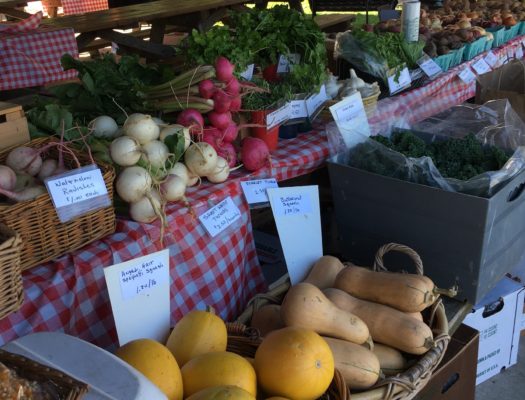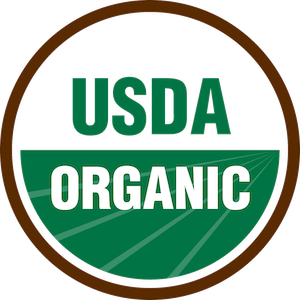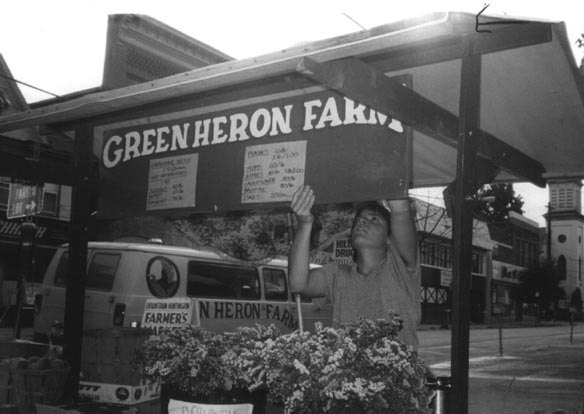
Green Heron Farm has been growing and selling organic produce since 1984. We established our first market in Huntingdon, PA with fellow local farmers. But after five years we realized that this small market could not sustain our business, so we set up shop at the Tacoma Park Farmers’ Market just outside of Washington D.C. At the same time we co-founded Tuscarora Organic Growers Cooperative to wholesale our produce along with other local organic farmers in central Pennsylvania.
In the mid 90’s we started a subscription service to various offices in Washington DC, including World Wildlife Fund, Environment Defense Fund, Center for Science in the Public Interest, Institute of International Education and a lot of lawyers offices. This was around the time the term CSA was invented although we never used it to describe what we were doing. Our model was significantly different from other CSAs in that we tried make the system as flexible for our customers as possible. We offered two standard share sizes (Single and Family) but we allowed our customers to sign up for the weeks they wanted deliveries. We also made a commitment to maintain a steady supply of produce throughout the season regardless of crop failures. Unlike other CSAs we do not force our customers to share in the pain of drought, flood or pestilence that routinely limits crop production. You always get what you pay for.
In 2001 we adjusted our marketing strategy again by returning to Huntingdon. We gave up the Washington DC subscription and started one in our own area. By 2002 we also gave up the Tacoma Park Farmers market and I took a position as sales manager at Tuscarora Organic Growers (TOG), while continuing to raise produce for wholesale. Then in 2008 we went back to full time farming and reestablished our Huntingdon roots.
Between the the establishment of our farm and the present there has been a sea change in the way people think about food and how it is produced. It is such a pervasive movement that even in a sparsely populated area like ours the demand for locally grown produce has exploded. After 30 years everyone else is catching up with us (or so we’d like to think) and running a profitable vegetable farm is not such a lame brain idea. Today our business includes the Huntingdon Farmers’ Market at Portstown Park, wholesaling to restaurants and retailers in State College and Huntingdon, and of course, a CSA.
The newest version of our CSA is very different from the original since we now operate it like a virtual store. Customers order only what they need for the week based on a list of available items that is sent out weekly to subscribers. Flexibility and simplicity are the key ingredients to its success. We focus on how people actually live in a modern world. There is one constant of our CSA that has not changed, however, and that is the weekly message I send to customers with the list of available produce.
These missives started as personal musings for my own dubious purpose of self expression and perhaps as a medium to avoid paying someone for a legitimate therapy session. (There are two stereotypical attributes of farmers that are absolutely true: we love to complain and we’re cheap.) At first I thought these writings were merely for my own benefit and that most customers would make every effort to ignore such tripe. Then one day when writers block was brought on by an exceptionally long day trying to irrigate a parched landscape, I received my first complaints. Why hadn’t I left a palatable story along with the vegetables? Who did I think I was denying my customers food for thought on matters fantastical and lunatic? This was definitely an eye opener for me and my wife spent about a week trying to deflate my ego.
This blog is the latest permutation of those original slips of paper that I would include in the bags of produce. (Yes, they were actually written on paper.) Many of my customers have been suggesting this form of publication for years, but like a true farmer I have resisted change until the technology is at least ten years old. (My favorite tractor is a 1948 Farmall Super A.) It will likely take a while for me to figure out how this beast operates but hopefully you will enjoy how it develops and visit this site on a regular basis.


